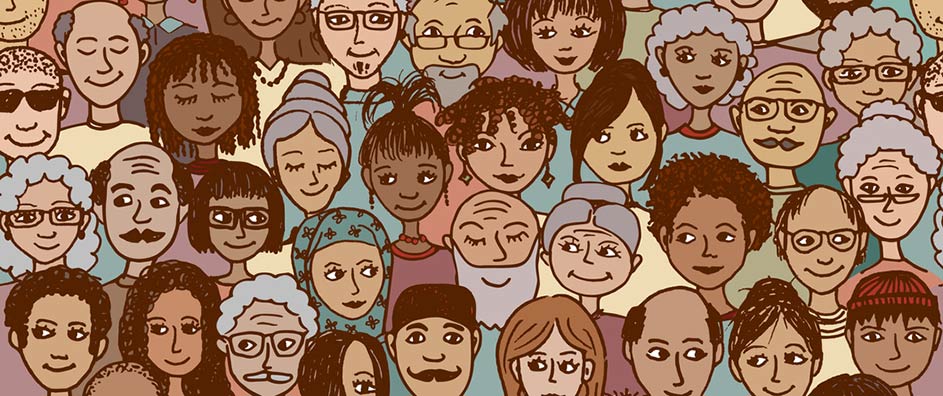The notion of the oneness of humanity is a cardinal tenet in the Baha’i Faith, articulating an ideal that encapsulates the essence of global unity and collective progress. Yet, such a profound principle invites scrutiny and raises a spectrum of inquiries: What does it mean to be “sub-human” in the context of Baha’i teachings? How does this concept intersect with current societal challenges? The following exploration seeks to unravel these complex questions while acknowledging the deeper cultural, historical, and spiritual undercurrents that render the Baha’i perspective both fascinating and elucidative.
The term “sub-human” has emerged in various discourses to describe extreme deprivation—be it of rights, dignity, or recognition—often pointing to marginalized groups suffering from systemic inequities. In the Baha’i view, this concept starkly contrasts with the intrinsic belief that all humans are endowed with nobility and potential, stemming from their creation in the image of God. Hence, no human should be regarded as ‘sub-human’; every individual is a reflection of the divine and possesses an inherent worth that warrants respect.
The oneness of humanity posits that despite racial, ethnic, or national differences, we are intertwined in a web of mutual reliance and collective destiny. This philosophical underpinning operates through the lens of interconnectedness, suggesting that the trials faced by one group resonate throughout the human equation. In a world rife with disparities, the challenge lies not only in addressing structural inequalities but also in transforming the underlying attitudes that perpetuate the notion of ‘otherness.’
To fully grasp the significance of the Baha’i teachings on the oneness of humanity, it is essential to explore the historical context in which these ideas proliferated. Founded in the mid-19th century, during a time of colonial expansion, social upheaval, and religious fragmentation, the Baha’i Faith arose as a response to a pressing need for unity. The foundational writings of Baha’u’llah emphasized compatibility between reason and faith, promoting a radical inclusivity meant to dissolve the barriers that have historically divided humanity.
At the heart of Baha’i teachings is the assertion that division and conflict stem from ignorance. When individuals and communities fail to recognize the oneness of humanity, they often succumb to prejudices and misguided notions of superiority. The Baha’i community stresses the importance of education, not merely as a means of imparting knowledge but as a transformative tool to engender empathy, tolerance, and cooperation.
Additionally, the principle of oneness cannot be divorced from the Baha’i affirmation of diversity; diversity is celebrated, not as a source of division but as a source of strength and enrichment. Just as a garden thrives when nurtured with a variegated array of flowers, so too does humanity flourish when different cultures, traditions, and perspectives harmoniously coexist. The imperative for social cohesion does not necessitate homogenization but rather embraces the beauty of plurality.
One may ponder the implications of these teachings in a contemporary milieu characterized by rising nationalism, sectarian violence, and social discord. The Baha’i perspective on the oneness of humanity invites individuals to seize the opportunity for personal and collective transformation. It encourages the question: How can one actively contribute to the construction of a humane society? Baha’is are urged to engage in community-building endeavors, promoting social justice, environmental stewardship, and a commitment to the common good.
Furthermore, Baha’i teachings advocate for a systemic approach to addressing social issues. Political and economic frameworks often reinforce disenfranchisement, contributing to the disenchantment that leads some to perceive others as ‘sub-human.’ The teachings encourage advocacy for policies that underpin equality and justice while simultaneously nurturing a spirit of service—an acknowledgment that collective well-being is inextricably linked to individual contributions.
The Baha’i principle of consultation serves as a cornerstone for conflict resolution and is a pragmatic application of the oneness of humanity. By fostering open dialogue, impartiality, and shared decision-making, communities can navigate complexities while embracing collective aspirations. This process cultivates a culture of mutual understanding and respect, thereby enabling individuals to recognize their interconnectedness.
Do the teachings of the Baha’i Faith absolve individuals from grappling with the harsh realities of a world often marked by inequity? Certainly not. Instead, they offer a paradigm in which individuals can recognize their shared humanity while actively engaging in the pursuit of justice. To acknowledge the plight of those deemed ‘sub-human’ is a call to action, a prompting towards empathy, and an exhortation to manifest solidarity.
Importantly, the exploration of oneness doesn’t posit that all beliefs and practices hold equal merit, but rather that a genuine encounter with the diverse tapestry of human experience expands one’s understanding of the Divine. The Baha’i teachings invoke a deeper contemplation of our shared human destiny, urging individuals to rise above personal or group prejudices to embrace universal values.
In conclusion, the Baha’i view of the oneness of humanity transcends the simplistic reduction of individuals to ‘sub-human’ statuses. It speaks to the intrinsic value of every soul, advocating for a world where recognition and dignity flourish and where the bonds of our humanity unify, rather than divide. The exploration of this principle, grounded in the quest for justice and compassion, ultimately fosters a society wherein every person is seen and treated as a rightful member of the human family, deserving of opportunity, respect, and love.
